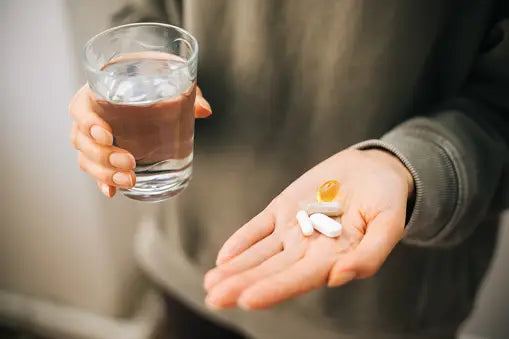

How much protein do you need?
Table of Contents
| If you have followed the latest research involving studies investigating the maximal amount of protein you can absorb in one sitting, it seems that maximal increases in protein synthesis occur at 30-40 grams of protein or so we thought…. |
Whey protein is popular among athletes, bodybuilders, fitness models, as well as people looking to improve their performance in the gym. Whey protein contains an incredible range of essential amino acids, which are absorbed quickly which make it superior to other proteins. Numerous studies show that whey protein can help you increase strength, gain muscle and lose significant amounts of body fat. Not only is whey protein needed for optimal increases in lean muscle, but whey protein is also one of the healthiest proteins you can consume due to its high glutathione levels. Glutathione is a potent antioxidant for those that don’t know. It’s been reported that 20-30 grams of whey protein stimulates maximal protein synthesis and adding more protein did not further stimulate protein synthesis.
4 or 6 Meals a Day for Mass
There was no apparent effect of increasing protein distribution from approximately 4 to 6 eating occasions on changes in lean mass during a rugby preseason. Increasing the frequency of protein consumption is recommended to stimulate muscle hypertrophy with resistance exercise. Researchers manipulated dietary protein distribution to assess the effect on gains in lean mass during a rugby preseason. 24 developing elite rugby athletes were instructed to consume high biological value protein at their main meals and immediately after resistance exercise while limiting protein intake between meals. To manipulate protein intake frequency, the athletes consumed three liquid protein supplements (22 g protein) either with main meals or between meals for six weeks. At the end of six weeks, the dietary manipulation successfully altered the protein distribution score (average number of eating occasions containing > 20 g of protein) to 4 to 6 but there was no difference in gains in lean mass between conditions. There was no apparent effect of increasing protein distribution from approximately 4 to 6 eating occasions on changes in lean mass during a rugby preseason. However other dietary factors may have augmented adaptation. So the moral of the story is that you need protein for optimal gains in muscle mass but increasing the amount of protein you consume at each meal is not going to further augment gains in lean muscle mass. There seems to be a ceiling effect with protein consumption, once you have reached an optimal dose of protein saturation in your body, further increases in protein are not going to be beneficial.
More Protein in One Sitting, but Less Often
Researchers wanted to examine protein synthesis, breakdown and net protein balance in human subjects in the fasted state and following ingestion of:
~40 grams of protein (moderate protein) that has been reported to maximize the protein synthetic response or
~70 grams of protein (higher protein).
Twenty-three healthy young men who had performed prior resistance exercise or time-matched resting. Subjects were randomly assigned into an exercise or resting group, and each group was studied at the two levels of dietary protein intake in random order. The subjects were randomly assigned into an exercise group protocol consisting of 3 sets of 10 repetitions of bench press, lateralis pull-down, leg press, and leg extension each at 80% of 1 repetition maximum (1 RM, the maximum weight that can be lifted for one repetition) at a pace of 30 sec per set (rest interval between sets was less than 2 min, and the entire exercise bout was completed in ~45 – 50 min), or a resting group.
At the end of the study, exercise in the fasting state did not significantly affect protein kinetics. Feeding resulted in positive net protein balance at both levels of protein intake (moderate and high protein). Net protein balance was greater in response to the meal containing high protein compared to the moderate protein group. The greater net protein balance with the 70-gram high protein meal was achieved primarily through a greater reduction in protein breakdown and to a lesser extent stimulation of protein synthesis. High protein resulted in greater plasma essential amino acids responses vs. moderate protein. In conclusion, whole body net protein balance improves with greater protein intake above that previously suggested to maximally stimulating muscle protein synthesis because of a simultaneous reduction in protein breakdown.
MacKenzie-Shalders KL, King NA, Byrne NM, Slater GJ. Increasing Protein Distribution has no Effect on Changes in Lean Mass During a Rugby Preseason. Int J Sport Nutr Exerc Metab. 2015 Jul 1.

















